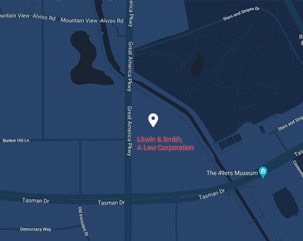Some questions regarding DACA
September 13, 2017
Individuals that have been receiving Deferred Action for Childhood Arrivals (DACA) might be eligible for immigration benefits that are more lasting and concrete than DACA. DACA affords beneficiaries a temporary reprieve from deportation. DACA beneficiaries have received a decision by immigration officials that no enforcement action will be taken against them for the two-year duration of the DACA grant. Effective September 5, 2017, this grant is no longer subject to renewal.
Below are a collection of common questions we have received since the September 5th announcement:
I am here on DACA; are there any ways that I can I get a green card?
A DACA beneficiary may qualify to receive their green card because U.S. immigration law provides five categories for non-citizens to acquire lawful permanent resident (LPR) status in the United States. They are: (1) family-sponsored immigrants; (2) employment-based immigrants; (3) diversity immigrants; (4) refugees; and (5) a select group of vulnerable immigrants including certain juveniles and crime victims that cooperate with law enforcement.
Here is a breakdown of the criteria:
1. Do I qualify because I was inspected and admitted by an immigration officer during my last entry into the U. S.?
Only noncitizens who were “inspected and admitted or paroled” into the United States, and who meet certain other requirements, including that they have a visa immediately available, are eligible to apply for LPR status from inside the United States. INA § 245(a).
Those who were not “inspected and admitted or paroled” into the U. S. have to leave the country to have their paperwork processed by the U.S. consulate in the immigrant’s place of last residence abroad to obtain LPR status. Once deported, excluded or removed under any provision of law, a noncitizen is inadmissible unless the noncitizen obtains consent to reapply for admission during that period. The accrued unlawful presence also triggers 3 year or 10 year bars to admission depending on the length of unlawful presence.
2. I am here on DACA; can I have a family member sponsor me for family-based sponsorship?
Noncitizens may be able to apply for LPR status from inside the United States if a family member or an employer filed certain petitions on or before April 30, 2001, and a visa is immediately available. INA § 245(i). A noncitizen may adjust status under this provision of law even if he or she entered without inspection, although he or she will have to pay a statutory fine ($1,000) in most cases.
The following qualify for a family-based sponsorship:
· Immediate relative of a U.S. citizen;
· Family member of a U.S. citizen;
· Family member of a lawful permanent resident;
· Person admitted to the U.S. as a fiancé(e) of a U.S. citizen;
· Person admitted to the U.S. as the child of a fiancé(e) of a U.S. citizen;
· Widow or widower of a U.S. citizen and you were married to your U.S. citizen spouse at the time your spouse died
A U.S. citizen or LPR family member has subjected me to battery or extreme cruelty. Do I still need them to sponsor me?
The Violence Against Women Act (VAWA) allows battered immigrants to petition for legal status in the United States without relying on abusive U.S. citizen or LPR spouses, parents or children to sponsor their adjustment of status applications.
3. I am here on DACA; Can I qualify for an employment-based visa?
A DACA beneficiary may qualify for a nonimmigrant employment visa if granted a waiver of inadmissibility and the applicant qualifies for the nonimmigrant visa they are seeking. INA 212(d)(3). Additionally, a DACA beneficiary granted a waiver of inadmissibility under section 212(a)(9)(A)(iii) is given work authorization.
4. I am here on DACA, but I am afraid of persecution if I return home. Do I have a viable asylum claim?
If you are an individual that is unable or unwilling to return to your home country because of persecution or a well-founded fear of future persecution on account of your race, religion, nationality, political opinion, or membership in a particular social group, you may be eligible for asylum.
Asylum law protects only a subset of individuals who have been harmed or who reasonably fear harm in their home country. The past or feared future mistreatment must rise to the level of persecution. Moreover, the persecution must be motivated at least in part by your race, religion, nationality, political opinion, or membership in a particular social group. The persecutor must come from the government, or persons or organizations that the government is unable or unwilling to control. However, asylum law does not protection to those fleeing generalized lawlessness and violence.
I am here on DACA, but I cannot return to my family because I am afraid of abuse, neglect, or abandonment. Can I qualify for a green card even though I entered without being inspected and admitted by an immigration officer?
Special Immigrant Juvenile Status (SIJS) is a humanitarian form of relief available to noncitizens under the age of 21 who seek the protection of a state juvenile court due to abuse, neglect, or abandonment. SIJS is available to noncitizens that entered the U.S. in any manner. If you are on DACA, under 21, unmarried, and have been the victim of abuse, neglect, abandonment or similar mistreatment by one or both parents, it may be in your best interest to open a juvenile court case and pursue SIJS in lieu of or in addition to DACA
5. Are you eligible to apply for a temporary visa for certain victims of crimes?
Victims of certain crime victims may be eligible for U or T visas. This applies to those who are not in a lawful status, including those who entered without inspection. These visas afford their own status making them preferable to DACA. T and U visas encourage undocumented victims of certain crimes to cooperate with law enforcement in the investigation and/or prosecution of those crimes.
U Visa: These visas are available to noncitizens who have been the victims of certain crimes, suffered substantial physical or mental abuse as a result of having been victims of such crimes, and cooperated with law enforcement in the investigation or prosecution of those crimes.
Qualifying criminal activity includes the following crimes, as well as “similar activity in violation of Federal, State, or local criminal law”: rape, torture, incest, domestic violence, sexual assault, abusive sexual contact, prostitution; sexual exploitation; stalking; female genital mutilation; being held hostage; peonage; involuntary servitude; slave trade; kidnapping; abduction; unlawful criminal restraint; false imprisonment; blackmail; extortion; manslaughter; murder; felonious assault; witness tampering; obstruction of justice; perjury; fraud in foreign labor contracting (as defined in 18 U.S.C. § 1351); or attempt, conspiracy, or solicitation to commit any of the above-mentioned crimes.
T Visa: A T visa is available to a noncitizen who can demonstrate that he or she:
· Is or has been a victim of a “severe form of trafficking in persons,” as defined in 22 U.S.C. § 7102(9);
· Is physically present in the United States, American Samoa, or the Mariana Islands or at a port of entry on account of trafficking;
· Has complied with any reasonable request for assistance in investigating or prosecuting trafficking (if 18 or older); and
· Would suffer extreme hardship involving unusual and severe harm upon removal.
I am here on DACA, but my parents or grandparents are U.S. citizens. Am I a citizen or a noncitizen national of the United States?
If you were born in any of the following locations, then you acquired either U.S. citizen or national status at birth:
· any of the 50 United States
· Puerto Rico
· the Panama Canal Zone (only if birth occurred prior to October 1, 1979)
· Guam
· the U.S. Virgin Islands
· American Samoa (noncitizen national)
· the Swains Islands (noncitizen national)
· the Commonwealth of the Northern Mariana Islands (depending on date of birth)
A child born outside the United States may acquire U.S. citizenship at birth if one or both parents are U.S. citizens. A grandparent may have transmitted U.S. citizenship to your parent, who may in turn have transmitted citizenship to you. USCIS will consider the following factors to determine your status:
· Whether you were born in or out of wedlock;
· Whether the your mother or father held U.S. citizenship; and
· Whether and when the U.S. citizen parent resided in the United States or an outlying possession
These events highlight the need of an experienced attorney
DHS has stated that DACA recipients will not be deported as long as they have DACA. However, a DACA grant does not lead to lawful permanent resident status or a path to citizenship. DACA may also be rescinded, modified or withdrawn in the future. For these and other reasons, it is worthwhile to investigate whether you are eligible for immigration relief other than DACA. Permanent Residence and Asylum are just two examples.
About Litwin & Smith
You will benefit from our more than fifty years of immigration law experience and the focused knowledge of our attorneys in immigration and nationality law. We can effectively represent you in your quest to obtain a green card for yourself, an employee, or a family member. We evaluate your situation to determine the most viable method of obtaining permanent residency. We will help you complete and file the appropriate paperwork with the United States Citizenship and Immigration Services (USCIS).
For more information contact Litwin & Smith at or visit our Green Cards and Naturalization section for more information.
Our lawyers have successfully guided countless clients through the naturalization process. We have the experience and resources necessary to prepare all applicable paperwork, comply with filing requirements, ensure clients are prepared for tests in English and Civics as well as all other aspects of the legal process.
Contact an Immigration and Naturalization Lawyer
Contact one of our knowledgeable and experienced immigration law attorneys at Litwin & Smith to discuss your needs.

